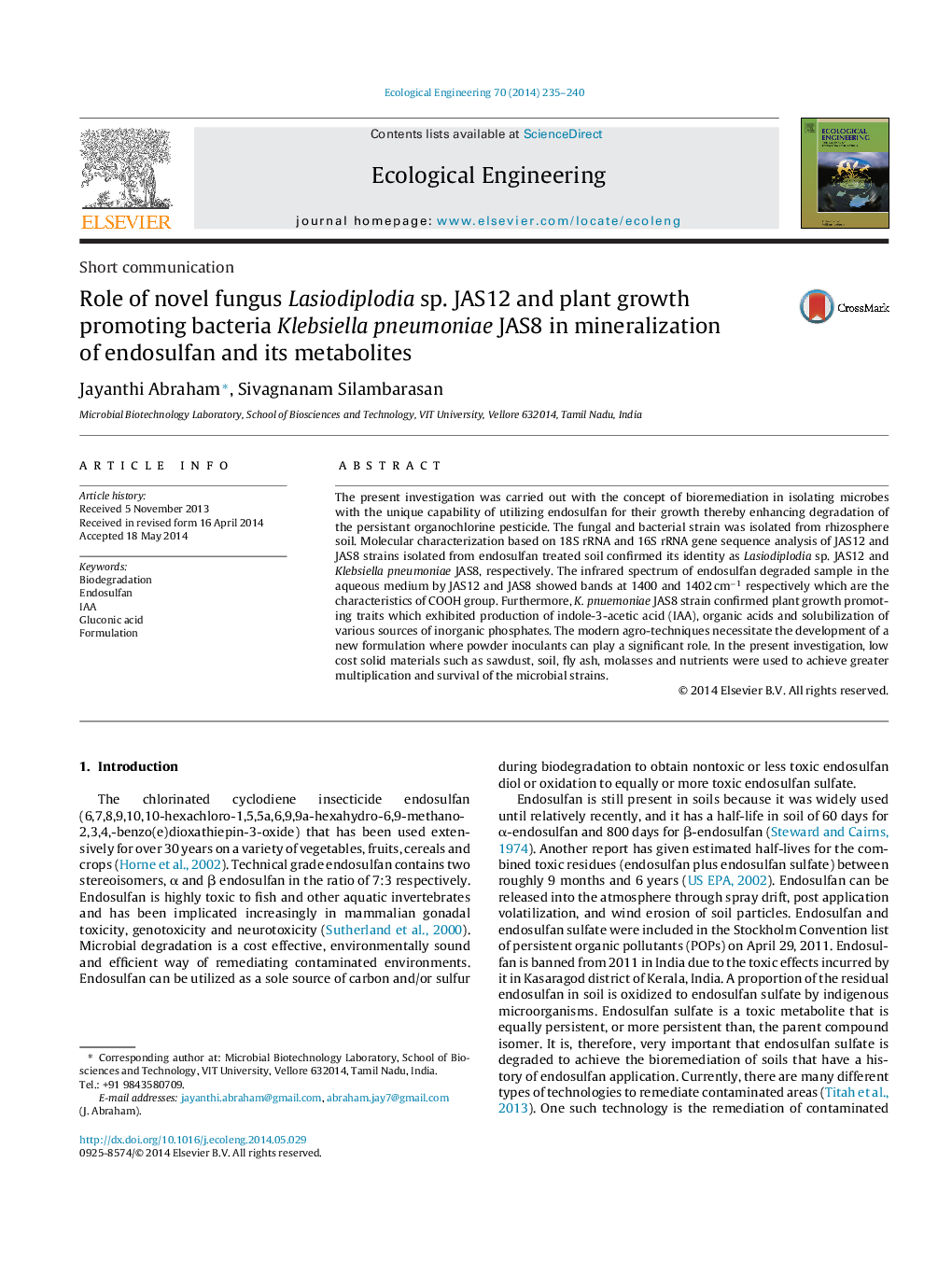| Article ID | Journal | Published Year | Pages | File Type |
|---|---|---|---|---|
| 6302152 | Ecological Engineering | 2014 | 6 Pages |
Abstract
The present investigation was carried out with the concept of bioremediation in isolating microbes with the unique capability of utilizing endosulfan for their growth thereby enhancing degradation of the persistant organochlorine pesticide. The fungal and bacterial strain was isolated from rhizosphere soil. Molecular characterization based on 18S rRNA and 16S rRNA gene sequence analysis of JAS12 and JAS8 strains isolated from endosulfan treated soil confirmed its identity as Lasiodiplodia sp. JAS12 and Klebsiella pneumoniae JAS8, respectively. The infrared spectrum of endosulfan degraded sample in the aqueous medium by JAS12 and JAS8 showed bands at 1400 and 1402Â cmâ1 respectively which are the characteristics of COOH group. Furthermore, K. pnuemoniae JAS8 strain confirmed plant growth promoting traits which exhibited production of indole-3-acetic acid (IAA), organic acids and solubilization of various sources of inorganic phosphates. The modern agro-techniques necessitate the development of a new formulation where powder inoculants can play a significant role. In the present investigation, low cost solid materials such as sawdust, soil, fly ash, molasses and nutrients were used to achieve greater multiplication and survival of the microbial strains.
Related Topics
Life Sciences
Agricultural and Biological Sciences
Ecology, Evolution, Behavior and Systematics
Authors
Jayanthi Abraham, Sivagnanam Silambarasan,
